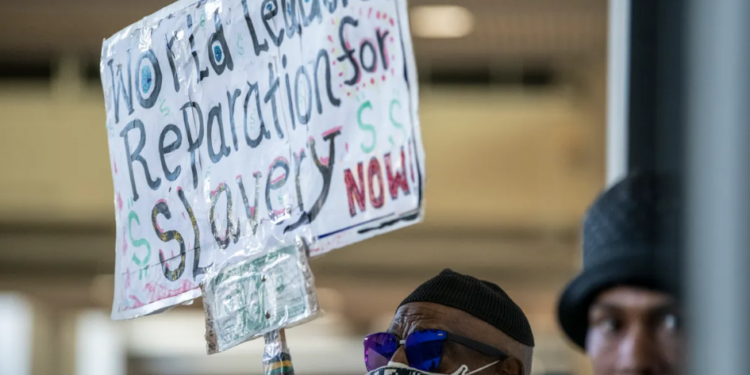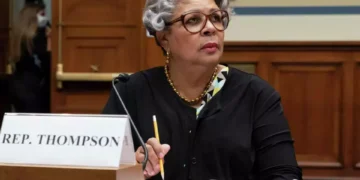Dec 11, 2024 Story by: Editor
The government’s authority over eminent domain has historically had a profound and unequal impact on Black Americans and other minority communities. This power allows the government to seize private property for public use, as granted by the Takings Clause of the Fifth Amendment to the U.S. Constitution. While property owners are entitled to compensation, which includes the market value of the land, any improvements made, or business losses, the consequences have disproportionately affected minority populations throughout history.
In California, the conversation surrounding reparations for those impacted by such government actions, particularly eminent domain, is heating up. The state has seen campaigns from residents who believe they were wronged by the seizure of their properties due to racial bias. Despite efforts by lawmakers to address these historical injustices, the debate remains divisive, with many questioning whether compensation for Black Californians will ever be fully realized.
Historical Context: Displacement and Injustice
Historically, eminent domain has been used to displace Black and other minority communities, often under racially biased circumstances. In many cases, these actions served to erase neighborhoods with significant Black populations in favor of developments that benefitted white residents and businesses. One prominent example is the displacement of families in the historically Black neighborhood of Greenwood, Oklahoma, which was destroyed during the Tulsa Race Massacre in 1921. The federal government, along with local authorities, used its power to seize property in the name of progress, leaving entire communities devastated.
Similarly, in California, efforts to reclaim land wrongfully seized through eminent domain have gained momentum. These campaigns are part of a broader push for reparations to address the lasting effects of such historical practices. Many Black residents have fought for the return of land, or at the very least, fair compensation for what was taken.
The Call for Reparations in California
While California’s reparations task force has made strides in advocating for justice, the conversation around financial restitution remains fraught with challenges. Governor Gavin Newsom recently vetoed Senate Bill 1050, which would have established a state process for reviewing claims of land lost through racially motivated eminent domain. The bill, authored by State Senator Steven Bradford (D-Gardena), aimed to provide a standardized mechanism for residents to seek reparations for land that was wrongfully taken. Despite passing both houses of the state legislature without opposition, Newsom’s veto cited concerns over the bill’s practical implementation, stating that it was “impossible to implement” due to a lack of necessary infrastructure.
Newsom’s veto has disappointed advocates, who feel that the state has missed an opportunity to redress past racial injustices. As Bradford, a member of the California Reparations Task Force, explained, the failure to pass key reparations legislation marks a significant setback in the broader effort to address the historical wrongs faced by Black Californians.
“The nation was watching this one,” Bradford remarked, highlighting the importance of the reparations movement on a national scale. “We had to strike when the iron was hot, but I just wish we would have had the opportunity to vote it up or down.”
The Long Path to Justice
While some states, like California, continue to grapple with the complexities of reparations, there have been some notable successes. The return of Bruce’s Beach in Southern California, for example, is seen as a landmark victory in the fight to restore land to Black families displaced by government actions. However, the broader movement for reparations, especially in the form of direct cash payments or land returns, remains a contentious issue.
As the conversation surrounding racial bias, eminent domain, and reparations evolves, the question remains: Will the government ever fully compensate Black Americans for the wrongs they have suffered? As the debate continues, the call for justice grows louder, with activists and lawmakers pushing for meaningful action to right the wrongs of the past. Source: Daily Journal

















